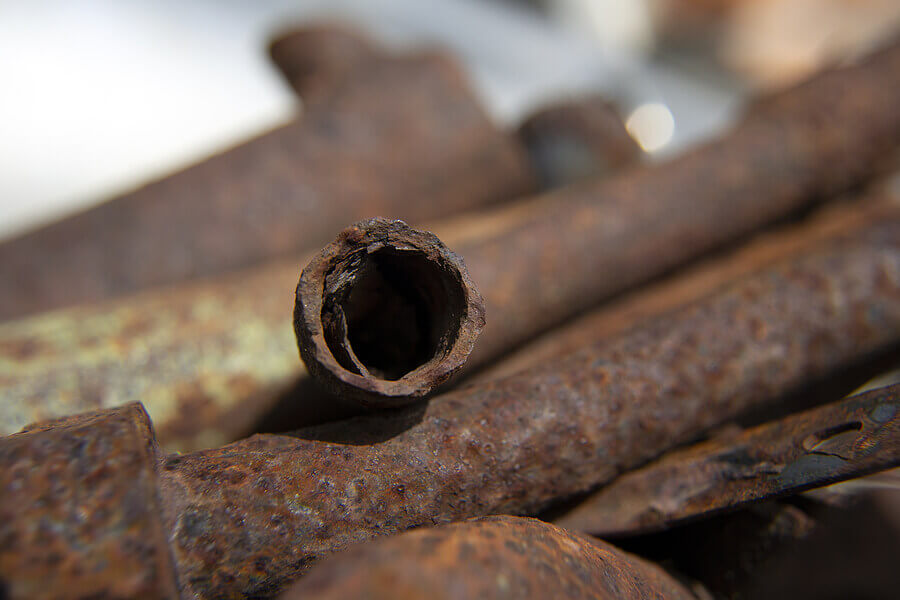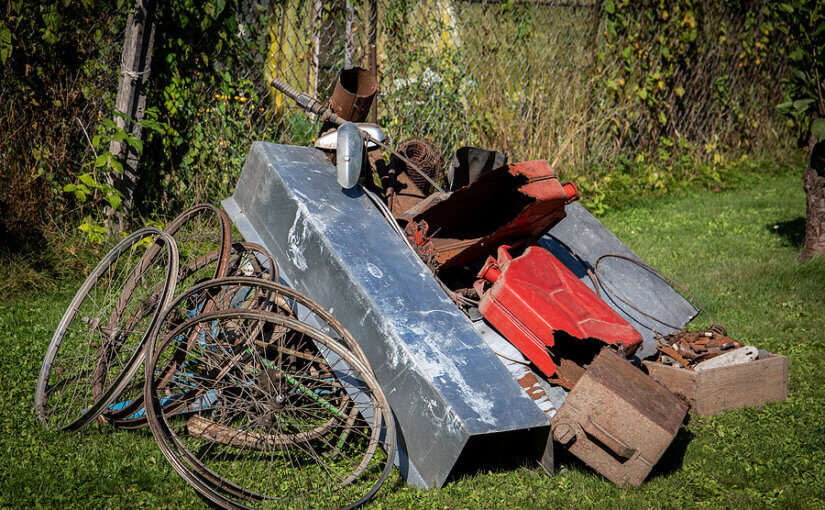Recycling scrap metal is an environmentally friendly and sustainable way to reuse unwanted materials.
After a building project or home clearout, you may find leftover scrap metal items and wonder how to get rid of them. Luckily, you have several options.
Utilising local recycling centres is straightforward and ensures less waste ends up in landfills.
As well as helping the planet, you can make extra cash from your items using scrap metal merchants.
If you’re creative, transforming your leftover scrap metal into artwork and furniture can be a fun way to reuse items.
Discover how to recycle scrap metal, including sorting, preparing, and using the best services.
Types of scrap metal
In general, scrap metal can be divided into ferrous and non-ferrous metals.
The simplest way of differentiating the two categories is that ferrous metals are magnetic, while non-ferrous metals aren’t. This is because ferrous metals usually contain iron or steel.
Ferrous metals also have a high carbon content, making them prone to corrosion and rust.
Everyday items made from ferrous metals include fridges, cars, ovens, and more.
Examples of ferrous metals are
- Iron
- Steel
- Cast iron
- Stainless steel
- Wrought iron
As non-ferrous metals aren’t magnetic, they are generally more resistant to rust. They are usually used in construction and building materials, including pipes, guttering, and electrics.
Examples of non-ferrous metals are
- Aluminium
- Copper
- Brass
- Bronze
- Lead
- Zinc
- Nickel
- Tin
Some scrap metals are also categorised as precious metals, usually found in electronic devices and jewellery.
Different types of scrap metals have different recycling values, so they must be separated and treated accordingly. Not all scrap metal recyclers will accept every kind of metal — check with the centre before bringing your items or arranging a collection.
Where to recycle scrap metal
The most straightforward way to recycle scrap metal is to use a specialised facility.
Some local council recycling centres take scrap metal. Check their website for more information, see what types they accept, and how to dispose of your metal.
Many private scrap metal yards also accept various types of scrap metals. You can locate these by doing a quick search online.
You can use scrap metal buyers if you want to make some cash from your unwanted scrap metal. The price of scrap metal fluctuates depending on the type, condition, and demand from sellers.
Non-ferrous metals are typically worth more, so scrap metal dealers will prioritise this. You can find scrap metal merchants by searching online or checking local directories.
Scrap metal collection

If you have a lot of scrap metal, taking your items to a recycling centre or scrap metal buyer may be impossible.
Some scrap metal collectors will come to your house and remove your items for a fee. They will either take it for recycling or clean it up for reselling.
Hiring a skip is another way to have your scrap metal collected — just ensure non of the items fall into the list of what not to put in a skip.
Large, enclosed, and roll on roll off skips are recommended for recycling scrap metal. This ensures all items are correctly contained, reducing the risk of misuse and ensuring safety.
Once your skip is collected, the scrap metal will be sorted and ready for recycling.
Preparing scrap metal for recycling
Whichever scrap metal recycling method you choose, ensuring that your items are properly prepared is useful.
First, identify the types of metals you have. Ferrous and non-ferrous metals have different recycling procedures, so dividing your metal into appropriate categories is crucial. Separate these into specific metal types, i.e. steel, iron, etc.
Next, you need to clean the metals and remove contaminants. Get rid of any oil, paint or rust using a wire brush or sandpaper to help. Wipe the metal down with a clean cloth before moving on to the next step.
Large scrap metal may need to be broken down into smaller pieces, especially if you hire a skip or transport the items yourself. Use a metal saw or other appropriate cutting tool to break the items into more manageable pieces.
Finally, you can box up or bundle your scrap metal items for recycling. Labelling your bundles is helpful if you sell your scrap metal to a merchant, and some dealers may ask for the weight of your scrap metal.
How to reuse scrap metal at home
Creative types can get crafty and reuse scrap metal at home.
Scrap metal art and sculptures make eye-catching, conversational pieces and are fun and easy to create if you have the right tools.
You could use your unwanted scrap metal at home to create
- Picture frames
- Water features
- Furniture and accessories
- Lamps
- Wall art
- Storage solutions
- Garden items
Look out for artists in your area needing scrap metal for their projects. This could be a simple and rewarding way to recycle your items locally without the need for recycling centres or merchants.
